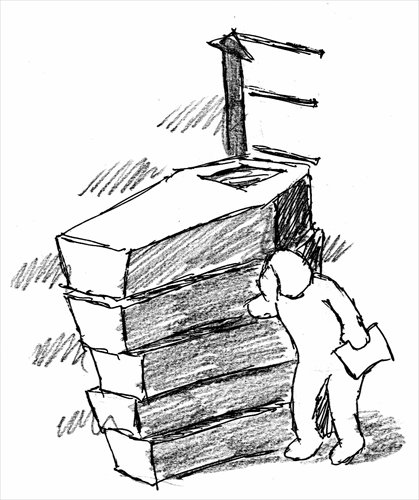Corpse-snatching case shows need for sensitivity

Illustration: Peter C. Espina/GT
Quotas cause plenty of problems in China. There's been a host of cases where people have adopted dubious or outright illegal methods to fill everything from crime-solving quotas to birth quotas.
In October last year, local psychologists in Zhengzhou, Central China's Henan Province falsely claimed people had mental health problems because they were required to report at least two cases of grave mental illness for every 1,000 residents.
The latest absurdity involving quotas was in Gaozhou, Guangdong Province, where two officials were arrested after they allegedly bought corpses from grave robbers to have them cremated, in a bid to ensure government-mandated quotas on the number of monthly cremations were met.
The two grass-roots officials, surnamed Dong and He, who were in charge of implementing funeral reform, reportedly paid between 1,500 yuan ($245) and 3,000 yuan for each corpse and traded dozens of bodies with a body-snatcher in recent years.
They had no other choice because if they failed to fulfill the quotas for cremations of their towns, they would be deducted marks in performance assessments and, to the worst scenario, be stripped of the chance to get promotion and end up penalized. One of them told the media that cremation quotas are one of the main sources of pressure on officials like them.
Although China has made decades of efforts to promote funeral reform by advocating cremations to replace burials and curbing the construction of tombs, it still faces stubborn resistance, especially in remote and extensive rural areas.
In traditional Chinese belief, the body must be intact for a peaceful afterlife, so that burials are preferred and families are keen to build tombs for their beloved passing-away members.
The habit of burying is ingrained in some rural parts of China. In a chilly episode of May, six elderly residents in Anhui Province reportedly opted to commit suicide before new regulations banning coffin burials came into full effect. Some rural Chinese are even still carrying out practices such as burying "ghost brides" to be companions in the afterlife to dead bachelors.
Considering the cultural and historical background of burials and the psychological importance of burial rites, especially for older people, the resistance to the funeral reform is understandable and predictable. But meanwhile, the harsh reality that China is starved of arable land to feed a booming population underscores the urgency of funeral reform.
This requires authorities to employ flexible and soft approaches such as enhancing education about the necessity of the reform or working with practitioners of traditional belief to find new approaches that are more environmentally sustainable, rather than resorting to cold quotas.
Funeral reform programs have been going on since the 1950s, but they still need more time. Not only will grass-roots officials face heightened pressure if the authorities use rigid directives to rule out entrenched traditions in rural areas, but in the worst-case scenario, the assault on traditions could result in widening the gulf between officialdom and the public.
The author is a reporter with the Global Times. yujincui@globaltimes.com.cn